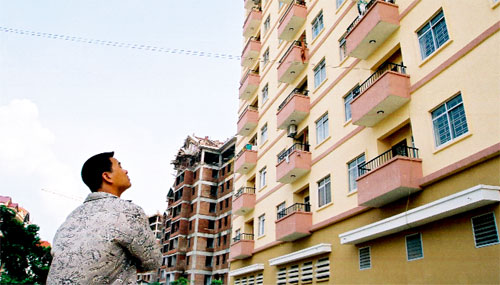
| Most cheap housing projects remain on paper | |
Up to 197 low-cost housing projects for students, workers and low-income earners, covering around 6.8 million square meters, still remain unimplemented despite being planned for completion in 2010. In response to the Government’s policy to promote low-cost housing projects issued in April 2009, some 289 projects have been registered, according to the Ministry of Construction. To date, only 64 of them have been deployed, and nine to build dormitories for workers and over 1,700 apartments for low-income earners have been completed. This delay is ascribed to the Government’s incentives having lost its appeal. The land use fee and land rent exemption are still maintained, along with credit and loan interest support from local authorities. Still, the tax preferences, as the most concerned to enterprises, were revised. At first, low-cost housing project investors would be exempt from corporate income tax in the first four years after taxable revenue is earned. These enterprises also enjoy 50% tax reduction in the following five years, and are imposed 10% corporate tax rate during operation. However, in July 2009 this policy was changed and thus investors are only exempt from the tax in 2009. Moreover, low-cost housing project owners have their profit margin controlled at below 10% of investment. Investment capital is also a headache despite the credit support. There have been only five projects accessing capital support from the Vietnam Development Bank so far. Other project owners must choose commercial loans. Therefore, many enterprises are concerned that rising market prices will lead to more difficult apartment sales given the current property market slowdown. | |
| The Saigon Times Daily |
